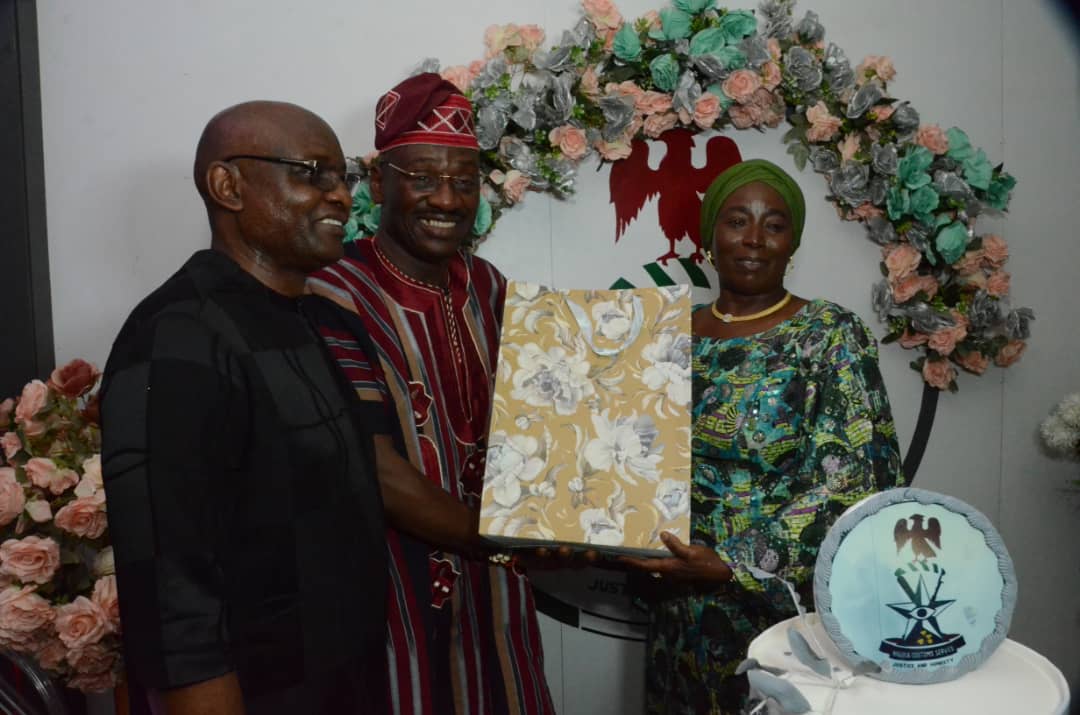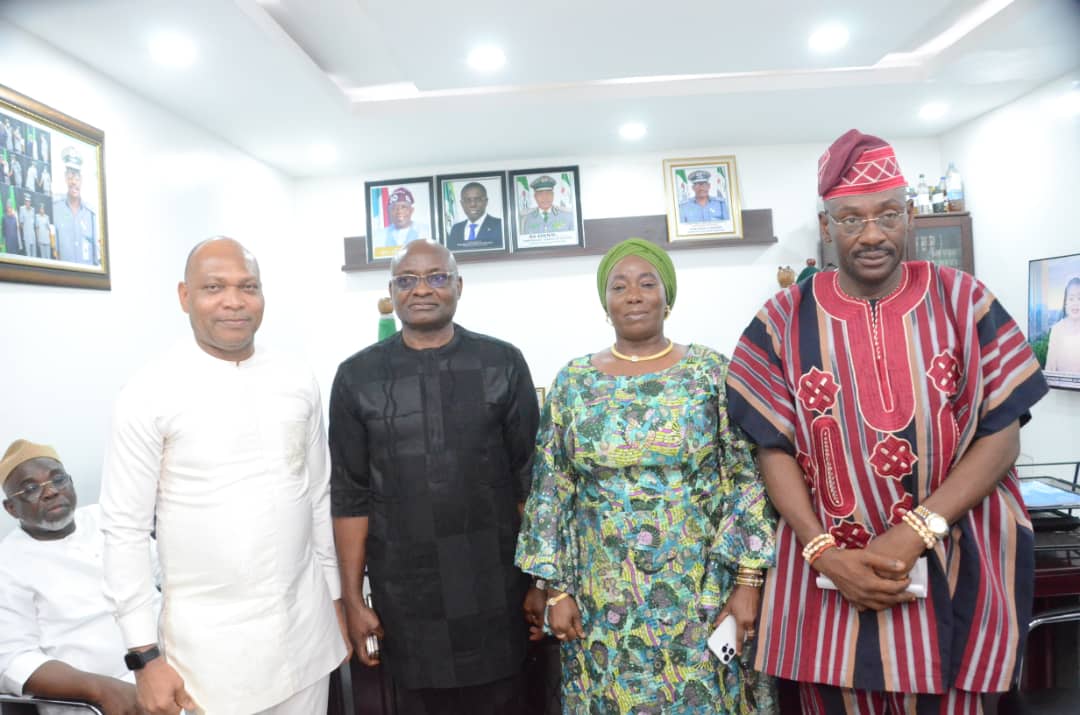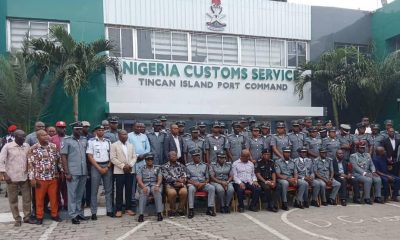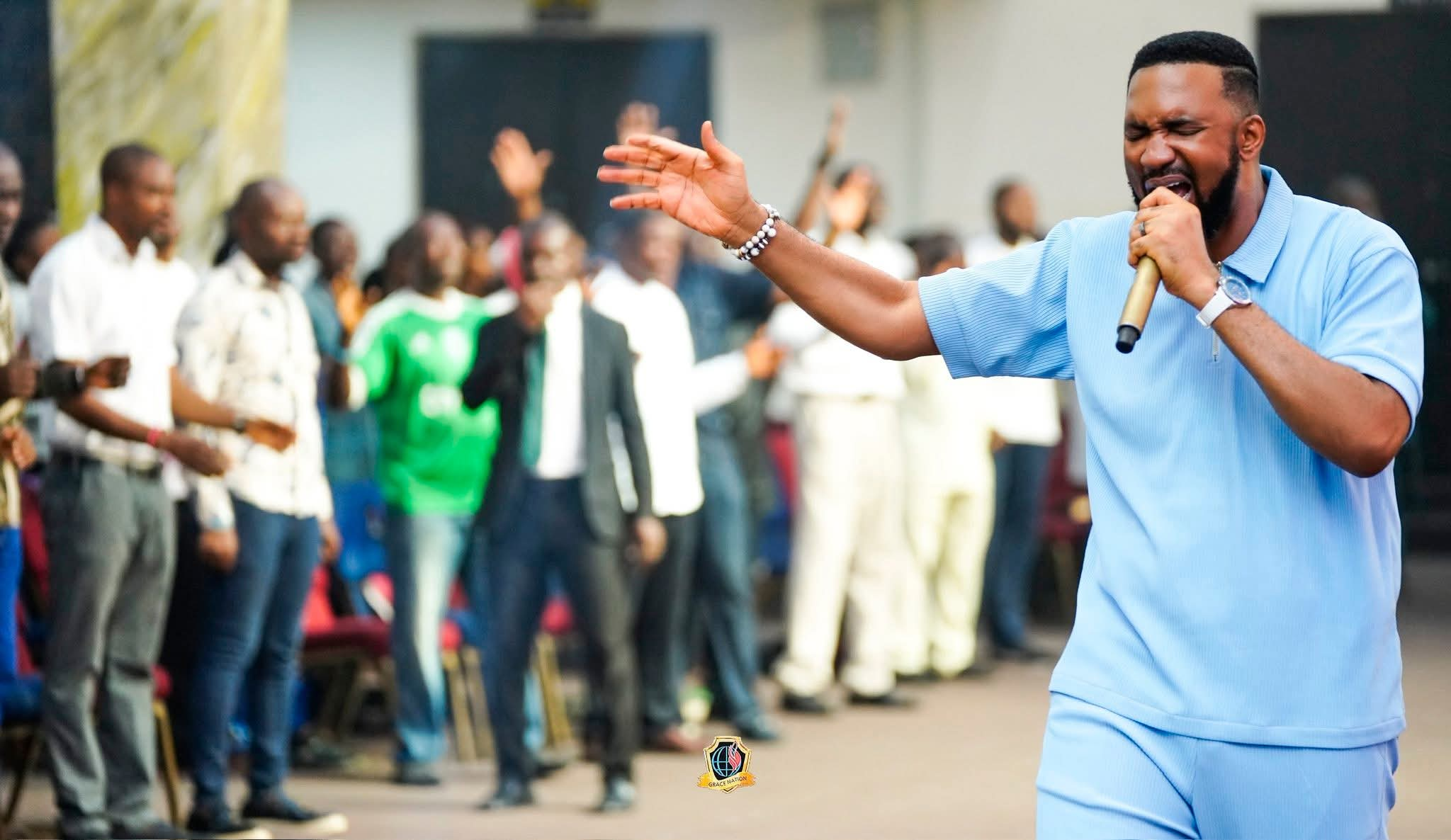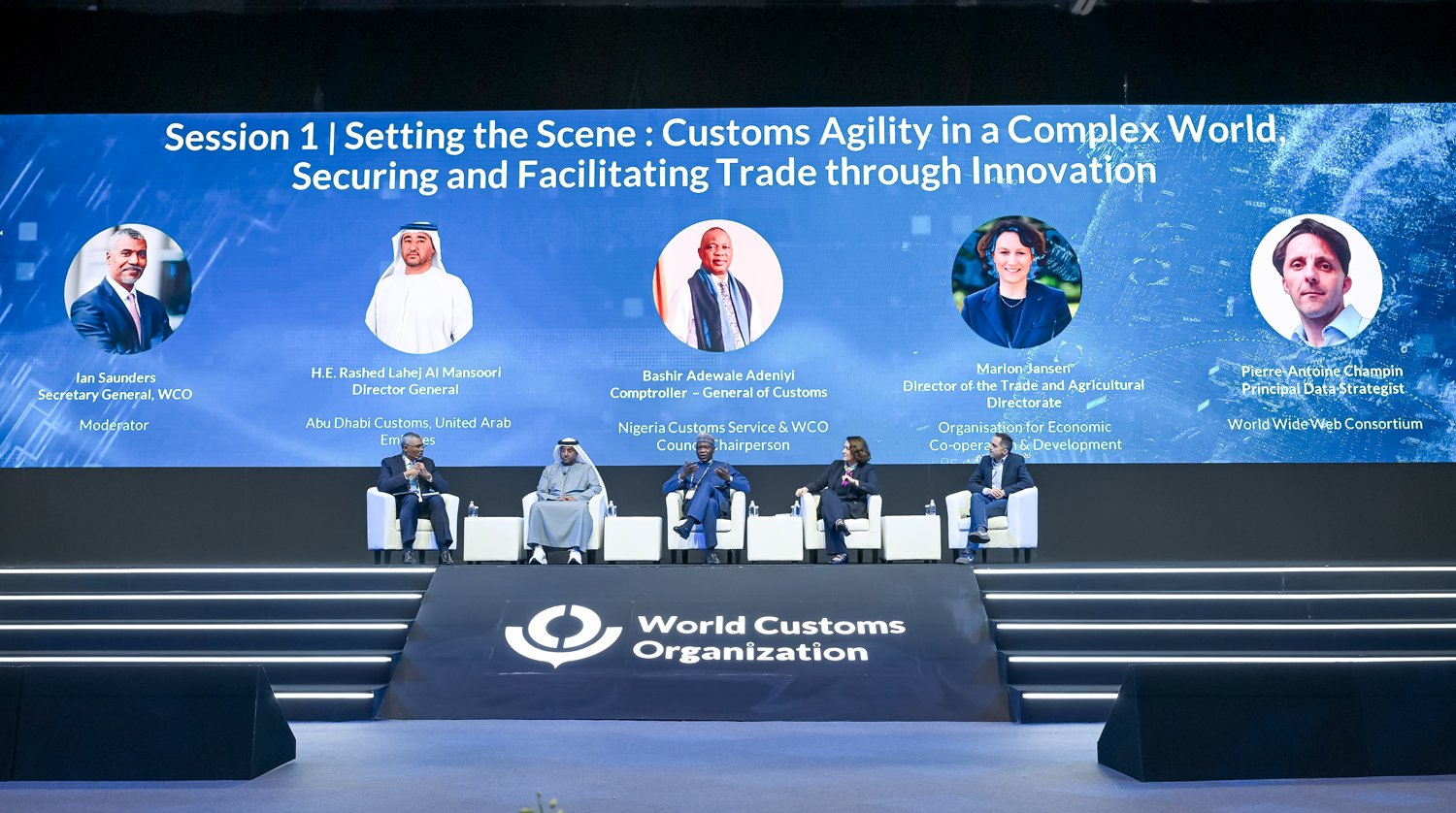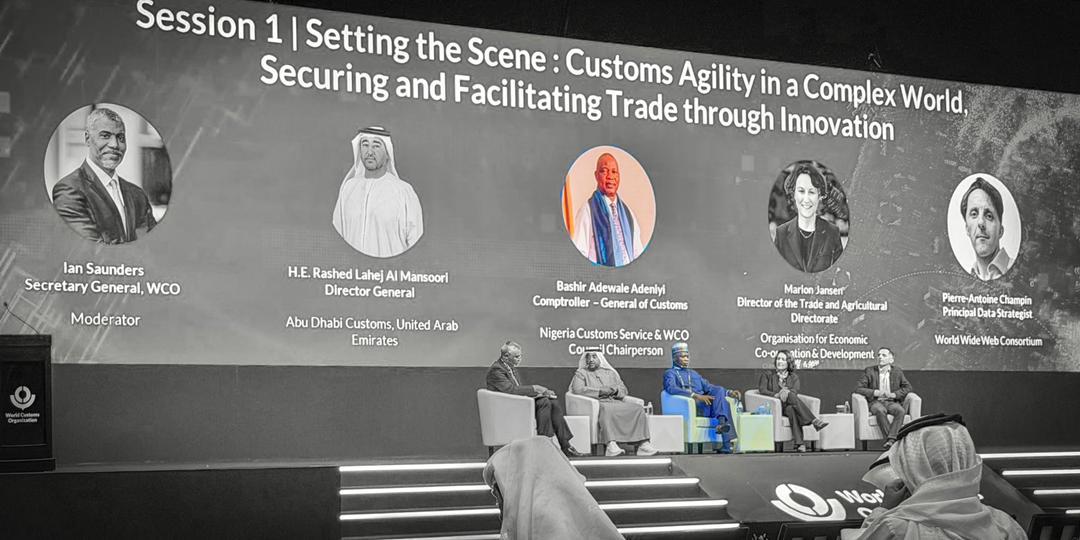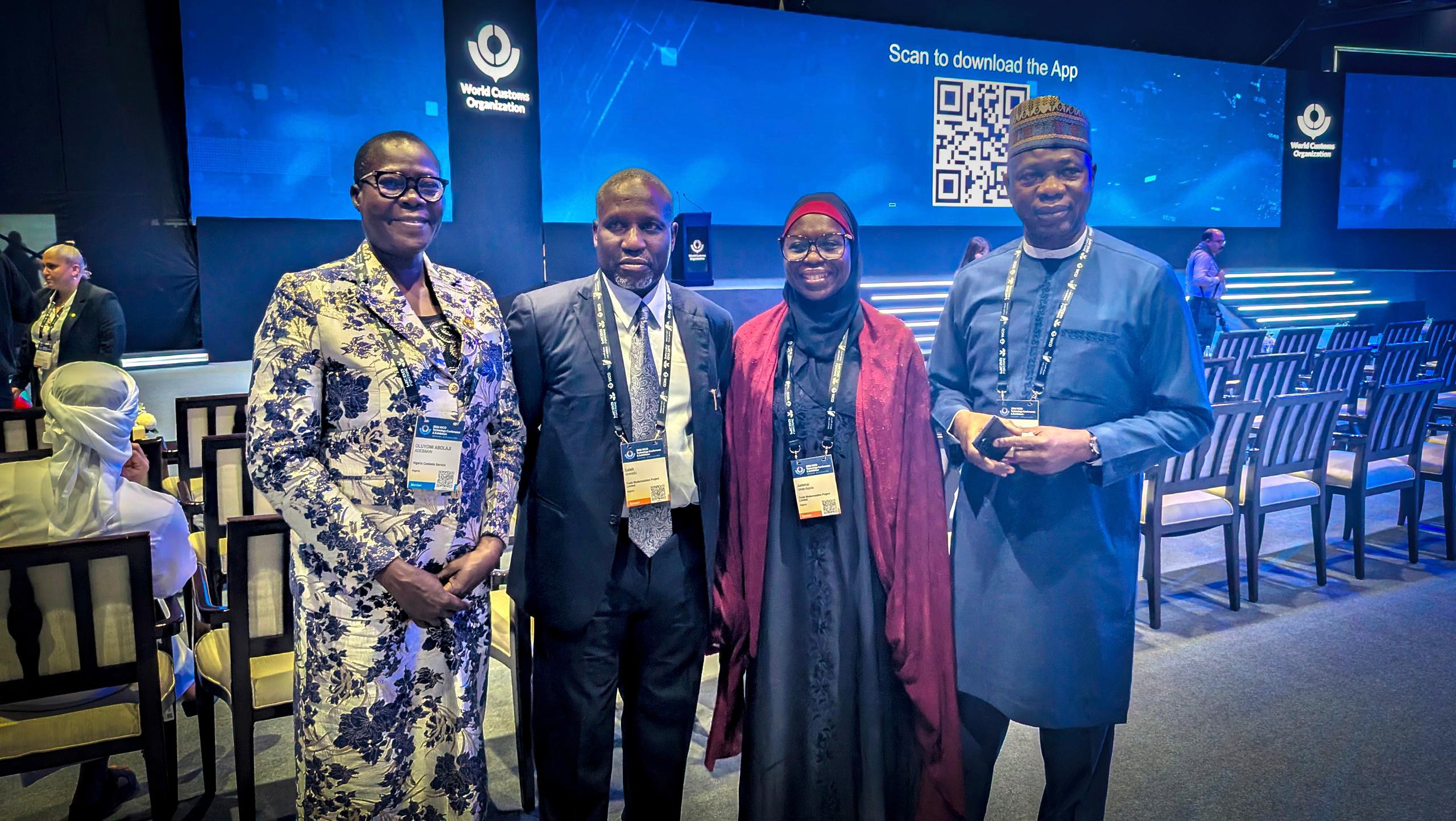Uncategorized
Sustain Tempo of High Revenue With Compliance, CGC Tells Comptroller Olomu
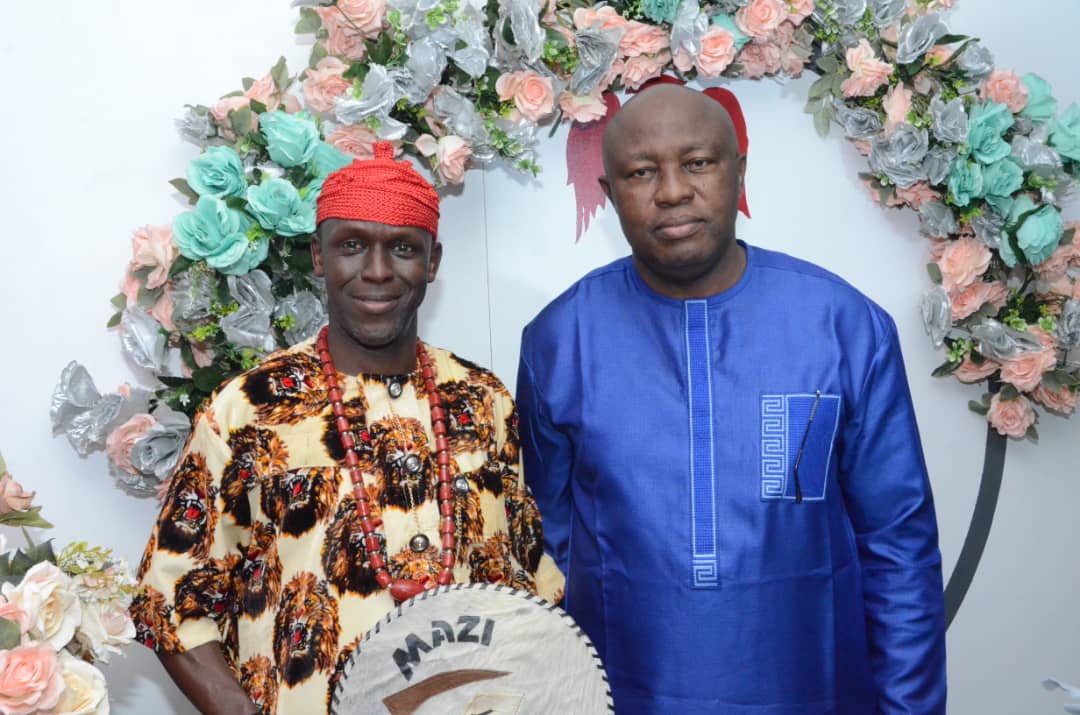
Sustain Tempo of High Revenue With Compliance, CGC Tells Comptroller Olomu
… As Apapa Command Honours Outstanding Stakeholders
By Ifeoma Ikem
Comptroller General of Customs, Bashir Adewale Adeniyi, MFR has commended the Area Controller of Apapa Port Command, Comptroller Babatunde Olomu, fsi for the command’s outstanding revenue collection of over N2.2tr and urged him to sustain the tempo.
CGC said this in Apapa on Friday at the command’s end of the year party and award ceremony also harped on the need for compliance and synergies as necessary strategies to greater productivity at the port. According to him, compliance is a competitive advantage.
He was represented by Deputy Comptroller General Caroline Niagwan, DCG Tariff and Trade, Adeniyi congratulated the Customs Area Controller and all the officers and men of Apapa Area Command for the milestone achieved in revenue collection to the tune of N2.2tr and still counting which has earned the command multiple accolades
“It is with immense pleasure that I stand before you today to celebrate a shared commitment to compliance and excellence in trade. This award ceremony is a testament to your dedication to ethical business practices, adherence to regulations, and unwavering support for the principles that drive Nigeria’s economic growth.
“Compliance is not merely a requirement; it is a competitive advantage. It fosters transparency, reduces operational risks, and strengthens the trust between businesses and regulatory authorities. It also positions compliant stakeholders to enjoy streamlined processes, faster clearance times, and access to the numerous benefits that come with being recognized as trusted trade partners.
“As a Service, we understand that sustaining compliance can sometimes require capacity building, especially as global trade evolves.
To this end, the Service is committed to providing the necessary training, technical assistance, and partnerships that will empower you with the knowledge and tools to maintain this high standard.
“Our goal is to ensure that every stakeholder remains competitive,vinnovative, and aligned with global best practices.
By working together, we can unlock even greater opportunities for growth. Compliant stakeholders not only contribute to national revenue but also drive economic development, attract foreign investments, and enhance Nigeria’s position in international trade” Adeniyi said
In his welcome speech, Comptroller Olomu expressed appreciation to the CGC and the customs management team for always providing the direction and inspiration to the command in it’s drive to meet government’s expectations .
He described the end of year party as many things rolled up in one as it strengthens the stakeholders bond as a community of government and private sector collaborators working together for the betterment of Nigeria;
it’s also to celebrate together as the year 2024 ends and honour those whose outstanding performances contributed in shaping the command’s achievements in 2024.
Comptroller Olomu said despite the challenges of low trade volume, the command is able to achieve it’s target which is a reflection of officers commitment and dedication to duty
He added that in line with the policy thrust of the CGC, the command utilised it’s relationship with stakeholders to achieve it’s goal this year.
According to him improving on stakeholder engagement has become an operational template the Comptroller General of Customs has impressed on the officers and expressed joy to announce that it has proven to be a masterstroke towards enhanced compliance.
Comptroller Olomu said “Compliance is no doubt the bedrock of all customs achievements in areas of revenue collection, anti smuggling and legitimate trade facilitation. Our approach to regurlarly engage our sister government agencies has raised our degree of intelligence sharing towards a common national interest.
“Let me use this period to thank the NPA, DSS, NDLEA, NAQS,Port Health, Police, Immigration and other sister government agencies for their consistent collaboration in 2024. They are indeed an integral part of the command’s success story in 2024. I urge them to stay on board let’s do it again in 2025.
“With our port users, we maintained regularly enlightenment meetings, faster trade dispute resolution mechanism and consistent appraisal of feedbacks to keep improving on our responsibilities.
“There have been positive fallouts of our regular interface with our stakeholders. This is evident in our collection of N2..2tr revenue and still counting, zeroing in on the minority that attempt smuggling by curbing their activities with seizures. We are fostering inclusivity and this will continue in 2025
“We have ensured no container , import or export consignment goes through our control without due diligence of proper examination. This has been the foundation of our impeccable enforcement drive.
“We are honouring some of our officers and stakeholders for their outstanding performances in the year 2024 . I want to urge the awardees to see this as a call for more commitment to surpass their best outputs. There is no end to improvement
“This should also be a challenge to those who didn’t make the award list this time, I urge them to keep improving with a promise that their inputs shall not go unnoticed for due recognition” he concluded
Among those recognised with various awards are APM Terminals, Sifax Group, ENL Consortium, Dangote, Talod Ocean Airfreight and Princess Chi Ezeh the CEO of Munah Sylva Nigeria Limited
The command also recognised serving and retired officers for their contributions to it’s overall successes in 2024.
news
Ramadan 2026: Let’s Be United, Shina Akanni Urges Muslims.

Ramadan 2026: Let’s Be United, Shina Akanni Urges Muslims.
As Muslims all over the world begins the 30 days compulsory fasting and prayer today,top Fuji Musician Aare Sir Shina Akanni Aroworeyin Scorpido has congratulates them for witnessing another month of Ramadan.
Akanni advised them to follow the teachings of the the Holy Prophet Muhammad (SAW) which is peaceful co existence among themselves and their neighbor ‘because Islam is Religion of peace”.
He said the month of Ramadan is an holy month therefore Muslims should try as much as they can to maintain peaceful coexistence among themselves and others and that they should see themselves as ambassador of peace.
While praying for Nigeria,Aare Sir Shina Akanni Aroworeyin Scorpido said he believes that there will be an economic turnaround soon because what’s is happening now are signs of thought times that never last “if we can pecevere things will get better”.
The Scorpido crooner who recently released a hip hop single titled “Magbelo” said he is currently working on a complete album which will be released before the end of the year.
Aare Sir Shina Akanni Aroworeyin Scorpido whose last album ‘ABCD” is still in hot demand said that his next album will be a pot pouri of all kinds of music because his brand of Fuji music is a blend Fuji , Hip-hop,Apala ,Highlife and others.
Uncategorized
The Enemies Within: Jonahs Are Not Manageable — Dr. Chris Okafor

The Enemies Within:
Jonahs Are Not Manageable — Dr. Chris Okafor
…….“To remove Jonah, you must bring Jesus into the matter.”
When a “Jonah” enters a person’s life, confusion, gossip, blackmail, betrayal, and the pull-him-down syndrome often follow. But the moment Jesus Christ is invited into the situation, the storm subsides and stability is restored.
This was the central message delivered by the Generational Prophet of God and Senior Pastor of Grace Nation Global, Dr. Chris Okafor, during the midweek non-denominational Prophetic Healing, Deliverance and Solutions Service (PHDS) held at the international headquarters of Grace Nation Worldwide in Ojodu Berger, Lagos, Nigeria.
The Clergyman also declared that Nothing Happens Without Spiritual Influence
In his sermon titled “The Enemies Within,” Dr. Okafor declared that nothing happens without spiritual involvement. According to him, every visible battle has an invisible root.
Referencing the biblical story of Jonah, the Man of God explained that Jonah’s presence on the ship gave access to a contrary spirit that tormented everyone onboard.
Despite the losses suffered by innocent traders and sailors, the storm persisted because of one man’s disobedience.
However, he noted that when Jesus speaks into a situation, every storm must obey. Just as Christ rebuked the storm and it ceased, so too will the storms in believers’ lives subside when He is invited into their “boat.”
*The Impact of a Jonah*
Dr. Okafor further emphasized that “Jonahs” are difficult to manage. When such individuals are present in one’s circle, progress becomes delayed.
What should ordinarily manifest quickly may be prolonged or frustrated because someone close—someone who understands you deeply—may be operating as a spiritual adversary.
He explained that negative narratives, unnecessary battles, and unexplained setbacks often begin when a “Jonah” gains access to a person’s inner circle.
*The Solution*
“To remove Jonah from the boat of your life,” the Generational Prophet declared, “you must invite Jesus Christ into the matter.”
According to him, when Jesus takes control of the boat, the plans of the enemy are overturned.
What was designed for downfall becomes a testimony. No storm or battle can succeed where Christ reigns, and the enemy is ultimately put to shame.
The midweek service witnessed a strong prophetic atmosphere, with the power of God evident through deliverance, restoration, and divine revelations.
The Generational Prophet ministered deeply in the prophetic, calling out names, villages, and addressing alleged spiritual strongholds, as many lives were reportedly restored—all to the glory of God.
By Sunday Adeyemi
Uncategorized
FROM BORDER TO MARKETS: HOW NIGERIA’S REFORMS ARE REWRITING AND MODERNISING TRADE FACILITATION By O’tega Ogra
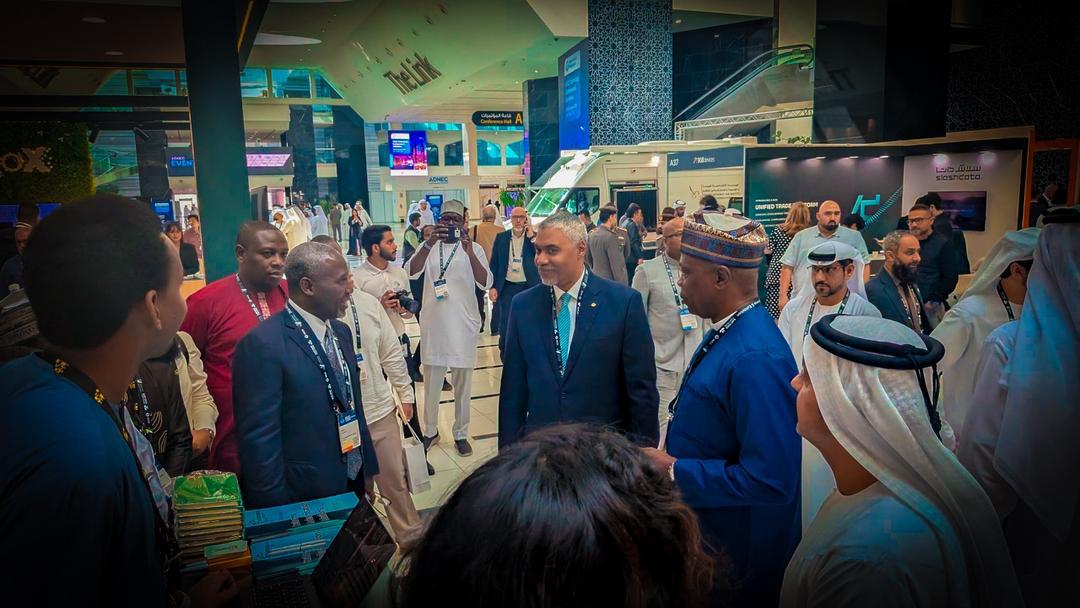
FROM BORDER TO MARKETS: HOW NIGERIA’S REFORMS ARE REWRITING AND MODERNISING TRADE FACILITATION
By O’tega Ogra
On the surface, the 2026 World Customs Organization (WCO) Technology Conference in Abu Dhabi, held in the last week of January, followed a familiar script: flags, formal sessions, carefully worded speeches. But beneath the choreography, something more consequential was unfolding. As customs chiefs and trade officials compared notes on the future of borders, Nigeria arrived not with theory, but with a working proposition.
The Nigeria Customs Service (NCS) Modernisation Project, being implemented through Trade Modernisation Project (TMP) Limited, unveiled to a global audience of customs administrators and policy leaders a window into how Africa’s largest economy is confronting one of the most complex challenges in public administration: reforming the machinery of trade while it is still running.
For decades, customs reform was treated largely as a technical exercise—frequent patches here, shoddy fixes there; new software in one corner, revised procedures in another. Nigeria’s presence in Abu Dhabi signalled something different. TMP Limited, working in partnership with the NCS, advanced the argument that trade is a cornerstone of economic development and must be supported by organic, sustainable partner ecosystems. Such ecosystems deliver speed and trust, revenue and credibility, and secure borders without stifling commerce.
That argument resonated in a room increasingly aware that global trade is no longer defined solely by tariffs and treaties, but by data, interoperability, and the quiet efficiency of systems that simply work.
The annual WCO Technology Conference has, in recent years, become a barometer for the direction of global trade governance. This year’s discussions reflected a shared anxiety: supply chains are more fragile, compliance risks are rising, and governments face mounting pressure to collect revenue without discouraging investment. Customs administrations now sit at the intersection of all three.
Nigeria’s response has been to attempt a full reset.
At the heart of this effort is the NCS Modernisation Project, implemented through a Public-Private Partnership (PPP) arrangement with TMP Limited as the concessionaire. The project seeks to replace fragmented technology deployments and manual processes within the Nigeria Customs Service with a single, integrated framework. This is anchored on B’Odogwu, a Unified Customs Management System (UCMS) that brings together cargo clearance, risk management, payments, and inter-agency collaboration. The ambition is sweeping—and so are the stakes.
Alhaji Saleh Ahmadu, OON, Chairman of TMP, framed the initiative as nothing less than an institutional reconstruction, designed to position the NCS at the forefront of global customs administration technology, aligned with international standards and assurance frameworks.
“Digital trade modernisation is not just about upgrading systems,” he told participants in Abu Dhabi. “It is about upgrading trust, predictability, and confidence in how trade flows through our borders.”
That choice of words matters. Nigeria’s economy has long struggled with the perception gap between its size and the ease of doing business. Investors cite delays. Traders complain of opacity. Government points to revenue leakages. In this context, customs reform becomes as much a credibility project as a technical one.
Saleh’s message was timely and direct: modern trade demands modern customs. Data-driven processes, automation, and risk-based controls are no longer luxuries; they are prerequisites for competitiveness in a world where capital moves faster than policy.
The institutional face of this digital transformation is the Comptroller-General of Customs, Bashir Adewale Adeniyi, who led Nigeria’s delegation to Abu Dhabi. His message reflected a subtle but important shift in how customs leadership now understands its role.
“Customs administrations today must evolve from gatekeepers to facilitators of legitimate trade,” Adeniyi said. “Nigeria’s customs modernisation project reflects our determination to place the Nigeria Customs Service at the centre of national economic transformation.”
It is a familiar refrain globally, but one that carries particular weight in Nigeria, where customs revenue remains a critical pillar of public finance. Automation, Adeniyi argued, is not about weakening control; it is about strengthening it through intelligence rather than discretion.
Risk management systems reduce unnecessary physical inspections. Integrated platforms limit human contact. Data analytics improve compliance targeting. When executed well, the result is faster clearance for compliant traders and tighter scrutiny for high-risk consignments.
In Abu Dhabi, peers from Asia, Europe, and Latin America listened closely to Nigeria’s presentation. Reforming customs in a small, open economy is one thing. Doing so in a market of over 200 million people, home to some of Africa’s busiest ports and its largest economy, is quite another.
Nigeria’s engagement emphasised that customs modernisation is embedded within a broader economic reform agenda under President Bola Ahmed Tinubu, GCFR. Simplifying trade procedures, strengthening revenue assurance, and aligning with international standards form part of a wider effort to reposition the economy for investment-led growth.
What makes the project particularly noteworthy is its insistence on end-to-end coherence. Rather than digitising isolated functions, the reform aims to connect agencies, harmonise data, and reduce duplication across government—an all-of-government approach that acknowledges an uncomfortable truth: trade friction is often created not at the border, but between institutions.
The WCO 2026 Technology Conference offered Nigeria more than a platform; it provided a stress test. Questions from peers were pointed. How will change be sustained across political cycles? How will capacity be built? How will entrenched institutional behaviours be unlearned?
The responses were pragmatic. Reform is being phased. Training programmes are ongoing. International benchmarks are being adopted not as slogans, but as operating standards. There were no claims of perfection—only a clear statement of intent.
“Our engagement here underscores Nigeria’s commitment to international cooperation,” Adeniyi noted. “We are learning, sharing, and contributing to global conversations on the future of customs administration.”
That contribution matters. As Africa moves to deepen regional trade under continental frameworks, customs efficiency will determine whether integration succeeds in practice or remains aspirational on paper. Nigeria’s experience, if successful, could offer a valuable template for other developing economies navigating similar constraints.
In Abu Dhabi, the mood was cautious but curious. Reform fatigue is real in many countries. Yet there was a growing sense that Nigeria’s effort—precisely because of its scale and difficulty—deserves attention.
Borders are rarely glamorous. But they are decisive. In choosing to modernise its borders in public, under global scrutiny, Nigeria is signalling something beyond technical competence. It is signalling seriousness.
And in global trade, seriousness still counts.
O’tega Ogra is Senior Special Assistant to President Bola Ahmed Tinubu, GCFR, responsible for the Office of Digital Engagement, Communications and Strategy in the Presidency.
-

 celebrity radar - gossips6 months ago
celebrity radar - gossips6 months agoWhy Babangida’s Hilltop Home Became Nigeria’s Political “Mecca”
-

 society6 months ago
society6 months agoPower is a Loan, Not a Possession: The Sacred Duty of Planting People
-

 society5 months ago
society5 months agoReligion: Africa’s Oldest Weapon of Enslavement and the Forgotten Truth
-

 news6 months ago
news6 months agoTHE APPOINTMENT OF WASIU AYINDE BY THE FEDERAL GOVERNMENT AS AN AMBASSADOR SOUNDS EMBARRASSING

